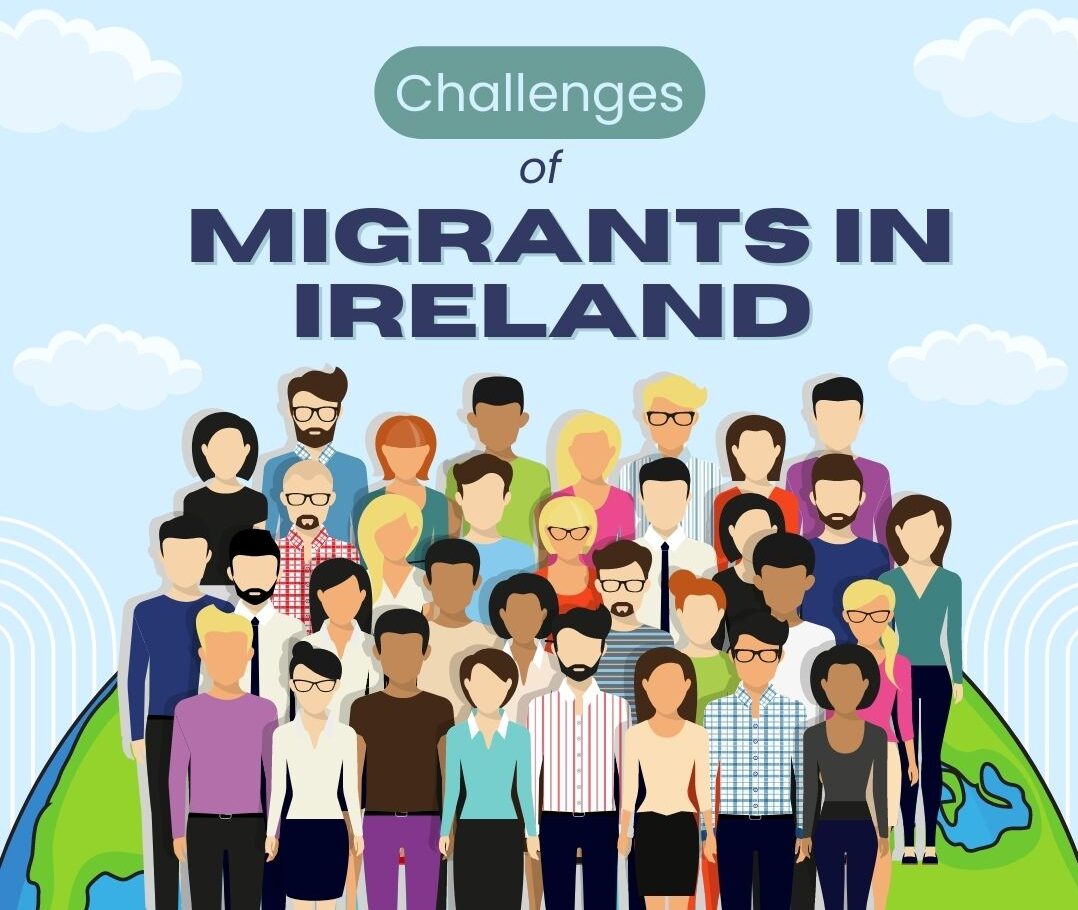Challenges of Migrants in Ireland

Migrants in Ireland, like in many other countries, face a range of challenges as they strive to integrate into their new society. These challenges can vary depending on factors such as immigration status, cultural background, language proficiency, and the level of support available to them. Some of the common challenges faced by migrants in Ireland include:
- Language Barrier: Language proficiency is often a significant hurdle for migrants. Those who do not speak English proficiently may struggle to access education, employment, healthcare, and social services. While there are language programs available, achieving fluency can take time and effort.
- Employment: Migrants may encounter difficulties in finding jobs that match their qualifications and skills. Recognition of foreign qualifications and experience can be a challenge, leading to underemployment or unemployment. Discrimination in the workplace can also be a barrier.
- Housing: Finding suitable and affordable housing can be challenging for migrants, especially in urban areas where the demand for housing is high. Discrimination in the rental market based on nationality or ethnicity can exacerbate these challenges.
- Cultural Adjustment: Adjusting to a new cultural environment can be overwhelming. Migrants may experience feelings of isolation, homesickness, and cultural shock. Adapting to new social norms, traditions, and ways of life can take time.
- Social Isolation: Migrants may face difficulties in establishing social connections, particularly if they have limited opportunities to interact with the local population. This isolation can impact mental health and overall well-being.
- Discrimination and Racism: Some migrants may experience discrimination, racism, or xenophobia based on their nationality, ethnicity, or immigration status. Such experiences can have negative effects on self-esteem, mental health, and social integration.
- Access to Healthcare: Migrants may encounter challenges in accessing healthcare services due to language barriers, lack of information about the healthcare system, and concerns about costs. Migrants without proper documentation may be especially vulnerable in this regard.
- Education: Children of migrants may face challenges in accessing quality education. Language barriers and cultural differences can affect their academic performance and social integration.
- Legal and Immigration Issues: Navigating the legal and immigration processes can be complex and stressful. Migrants may face difficulties in obtaining visas, work permits, and legal residency, which can impact their overall security and well-being.
- Family Separation: Some migrants may have left their families behind in their home countries due to economic or legal reasons. Family separation can cause emotional distress and challenges in maintaining family bonds.
- Exploitation and Vulnerability: Certain migrants, particularly those with uncertain legal status, may be more vulnerable to exploitation by unscrupulous employers, human traffickers, or others seeking to take advantage of their vulnerable position.
- Lack of Awareness of Services: Migrants may not be aware of the available support services, integration programs, and resources that can help them navigate their new lives in Ireland.
Addressing these challenges requires a multi-faceted approach involving government policies, community organizations, educational institutions, and society at large. Efforts to improve language training, provide cultural orientation, ensure fair employment practices, and raise awareness about migrants’ rights are all essential components of supporting successful integration and inclusivity for migrants in Ireland.
